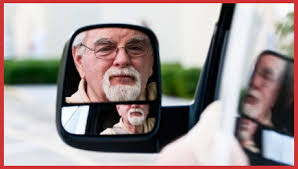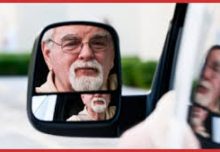 With about 25 million Americans 70 years of age or older and licensed to drive – about four of every five adults that age — the Boomers are poised to be a substantial force behind the wheel. But Boomers who drive will not be much different from other cohorts of drivers who have reached 70 and beyond before them. As a group they also will face vision and hearing deficits along with mental and physical challenges that will make some of them unsafe on the roads.
With about 25 million Americans 70 years of age or older and licensed to drive – about four of every five adults that age — the Boomers are poised to be a substantial force behind the wheel. But Boomers who drive will not be much different from other cohorts of drivers who have reached 70 and beyond before them. As a group they also will face vision and hearing deficits along with mental and physical challenges that will make some of them unsafe on the roads.
If you are a caregiver to an older loved one, you cannot just leave it up to the states to monitor your loved one’s capabilities behind the wheel. Some states do require more frequent testing of older adults renewing their licenses, but they may not ask for the prescriptions your loved one may be on let alone their over the counter (OTC) medicine purchases. Many of the medications which older drivers may be taking, such as anti-hypertensives, antidepressants and more, have explicit warnings in their package inserts about “not operating heavy machinery while taking the medication.” Even a mini-Cooper is a heavy machine. And medications that can be purchased at the drug store have some of the same precautions. If your loved one takes an OTC medicine for a viral cold, for help sleeping or for allergies may have a drug-induced drowsiness hours after taking the medication. This chemical drowsiness coupled with the other “side effects” of aging can pose a substantial safety issue.
I have been talking so far about “normal aging” and medications, but there are other chronic or degenerative medical conditions that can impair driving. Beyond dementia, Parkinson’s, Huntington’s and some psychiatric conditions may impair judgement and reaction times of older drivers. So, as a caregiver, you should look for the warning signs: their medications – all of them, their medical diagnoses and even the “small accidents” such as scrapes or other telltale signs on the car’s body. And if you attend your older loved one’s medical visits, take the next visit as an opportunity to ask the physician about mom’s or dad’s capabilities for driving. But do not pass the buck. Even physicians find these kinds of discussions that can constrain a patient’s freedom to be uncomfortable.
I call this kind of conversation, the three E’s:
- Evidence that there is a problem needs to be clear and substantiated.
- Empathy in how you approach your loved one is key; how would you feel?
- Encourage them to make the decision; you do not take the keys…they need to surrender the keys.
Have a productive conversation … and safe driving.
Charlotte Bishop is an Aging Life Care Professional and a Geriatric Care Manager and founder of Creative Care Management, certified professionals who are geriatric advocates, resources, counselors and friends to older adults and their families in metropolitan Chicago. Please email your questions to info@creativecaremanagement.com.





